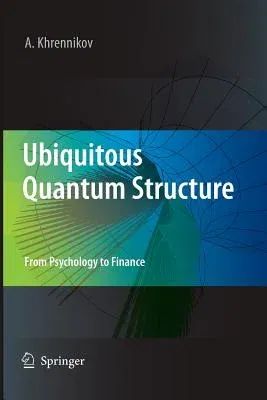Andrei Y Khrennikov
(Author)Ubiquitous Quantum Structure: From Psychology to Finance (2010)Paperback - 2010, 31 October 2014

Qty
1
Turbo
Ships in 2 - 3 days
In Stock
Free Delivery
Cash on Delivery
15 Days
Free Returns
Secure Checkout

Print Length
216 pages
Language
English
Publisher
Springer
Date Published
31 Oct 2014
ISBN-10
3642424953
ISBN-13
9783642424953
Description
Product Details
Author:
Book Edition:
2010
Book Format:
Paperback
Country of Origin:
NL
Date Published:
31 October 2014
Dimensions:
23.39 x
15.6 x
1.24 cm
ISBN-10:
3642424953
ISBN-13:
9783642424953
Language:
English
Location:
Berlin, Heidelberg
Pages:
216
Publisher:
Weight:
331.12 gm